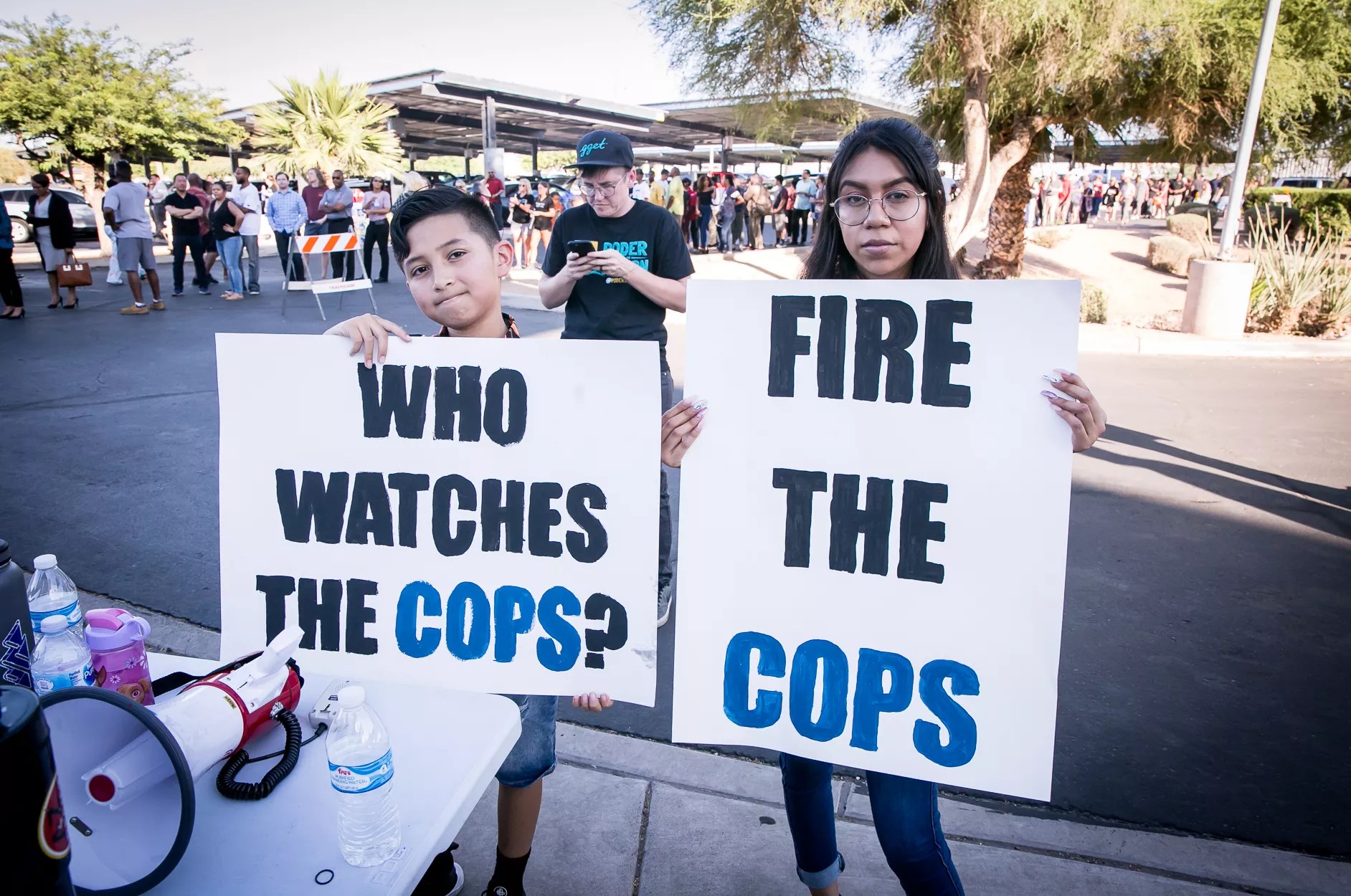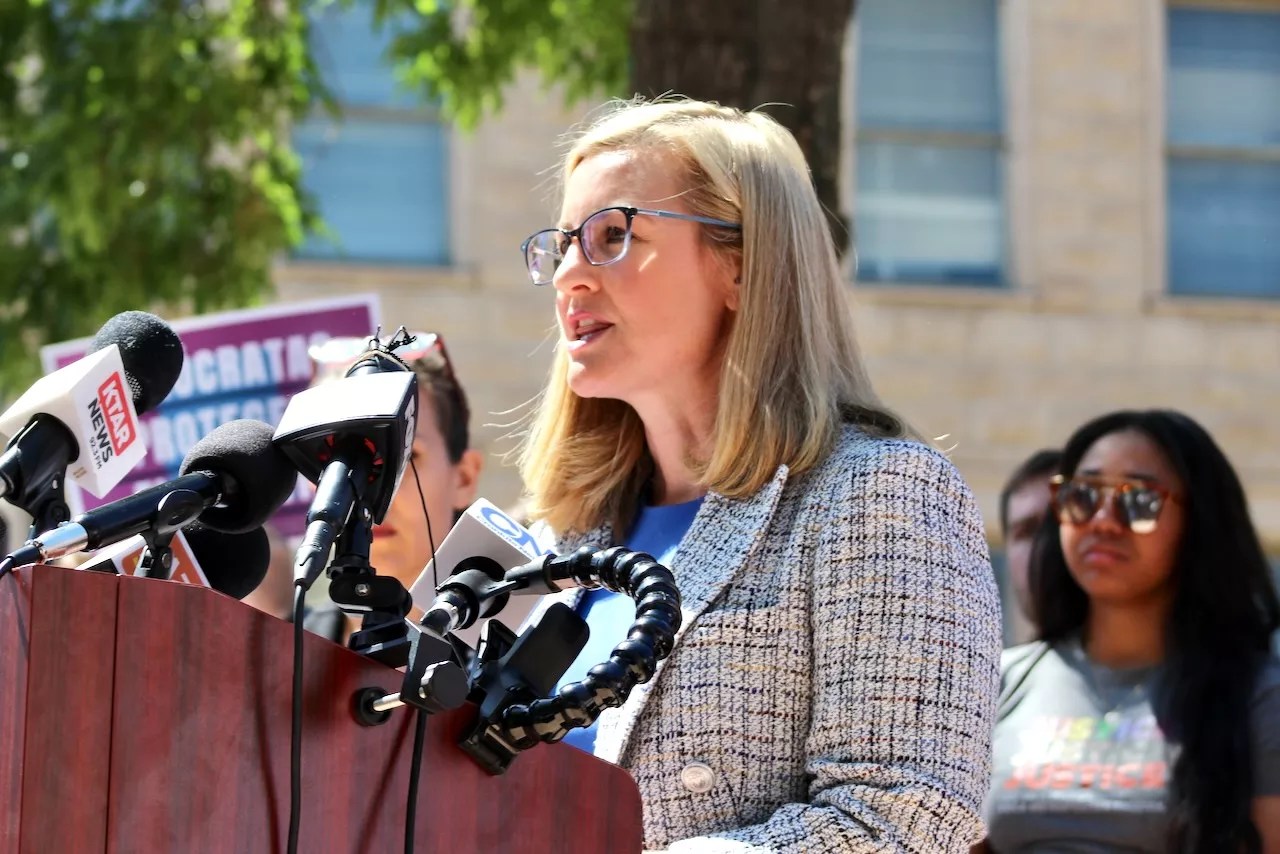
Melissa Fossum

Audio By Carbonatix
Nearly four years ago, investigators at the U.S. Department of Justice contacted Elizabeth Venable, the co-founder of the homelessness-focused organization Fund for Empowerment. The DOJ wanted her help investigating abuses committed by the Phoenix Police Department.
For the next 34 months, Venable and Fund for Empowerment organizers worked closely with DOJ investigators. The organization spent endless hours connecting the DOJ with more than a hundred people experiencing homelessness, each of whom had faced mistreatment at the hands of Phoenix cops.
Last June, that effort culminated in the DOJ’s release of a damning 126-page report that outlined Phoenix police’s pattern of unconstitutional practices, including the use of excessive force and discrimination against communities of color, people with disabilities and individuals experiencing homelessness. The report was a precursor to a fight. The DOJ wanted Phoenix to submit its police force to independent oversight and was willing to go to court to force such an arrangement.
But then Donald Trump won reelection in November and was inaugurated earlier this week. Now, any chance that Phoenix police would be held to federal account evaporated with a stroke of Trump’s pen.
As of Wednesday, according to a memo obtained by the Washington Post, the new Republican-run DOJ ordered its Civil Rights Division to freeze its investigative activities. That presumably would include the investigation into Phoenix police. According to the Arizona Republic, Phoenix has not been notified of any change in the status of its DOJ investigation. The DOJ declined to comment to Phoenix New Times.
Given Trump’s fondness for police – unless, of course, those cops were defending the Capitol on Jan. 6, 2021 – it seems likely the DOJ’s probe into Phoenix police has reached the end of its road. Before the election, Trump made it clear that he wasn’t interested in police oversight and said he would even seek immunity for law enforcement officers. He’s already pardoned two police officers who were convicted of murder.
For Venable and other activists working for police reform, it’s hardly a surprise that the clock ran out. “We watched the city of Phoenix drag their feet” in efforts to secure a consent decree, said Ben Laughlin, a spokesperson for the grassroots organization Poder in Action. “It seems like they were kind of hoping this would happen.” Many were skeptical of a consent decree – and the DOJ – in the first place.
Lola N’sangou, the executive director of the criminal justice accountability group Mass Liberation, said the DOJ is “just another arm of the policing system.” She added that despite being “spoon-fed” evidence of “systematic harm and misconduct in Phoenix, the DOJ dragged out the process “until just before a presidential election they knew could halt their efforts.”
“So, our response?” she said. “Good riddance to the DOJ.”

Phoenix Mayor Kate Gallego said the city’s “commitment to continuously improve the police department will remain” even if the Trump administration kills the DOJ effort to reform Phoenix police.
TJ L’Heureux
‘We’ll see how serious they are’
If the DOJ won’t hold Phoenix police to account, that leaves the city to enforce reforms. Even before the DOJ released its report, city leaders and police officials voiced resistance to a federal consent decree, arguing Phoenix could fix its police force by itself.
In a statement to New Times, the Phoenix Police Department said it remains committed to “developing a path that moves the city and police department forward, regardless of any change in direction at the federal level.” Phoenix Mayor Kate Gallego and Councilmember Carlos Galindo-Elvira echoed the dedication in their own statements. “Our commitment to continuously improve the police department will remain,” Gallego said, while Galindo-Elvira reiterated that “we must continue to move forward with identified priorities and policies to earn the public’s trust and confidence.”
The city has instituted some reforms since the DOJ released its report. Phoenix police also have continued to generate negative headlines, drawing international attention for the August beating and tasing of an innocent deaf, Black man with cerebral palsy. Perhaps that’s why the city’s avowed commitment to reform doesn’t mean much to police accountability groups.
“This is where we’re going to see how serious Phoenix city councilmembers really are now that their feet aren’t going to be to the fire around police reform,” Laughlin said. “We’ll see how serious they are about reducing police violence.”
For Venable, the change in the White House “shows how one approach (to police reform) can just evaporate overnight,” though the DOJ report’s mere existence may help push accountability efforts forward. Earlier this month, a federal judge allowed the report to be entered as evidence in a civil suit against Phoenix police brought by two protesters who claimed cops violated their free speech rights by arresting them in 2019.
The protesters lost that lawsuit, but the judge’s decision set a precedent that the DOJ report is admissible in court. Venable plans to use the 126-page report as evidence in Fund for Empowerment’s lawsuit against the city of Phoenix for its unconstitutional policing of the city’s homeless population.
For the most part, though, activist groups find themselves back where they were four years ago – pushing for change on their own. Organizers will continue to speak at Phoenix City Council meetings, highlighting the abuses of the city’s police force.
“Police accountability has never dependent on (the DOJ) and their absence will be of no consequence to our work,” N’sangou said. “We will continue exposing the truth, fighting for real change and holding police and prosecutors accountable.”